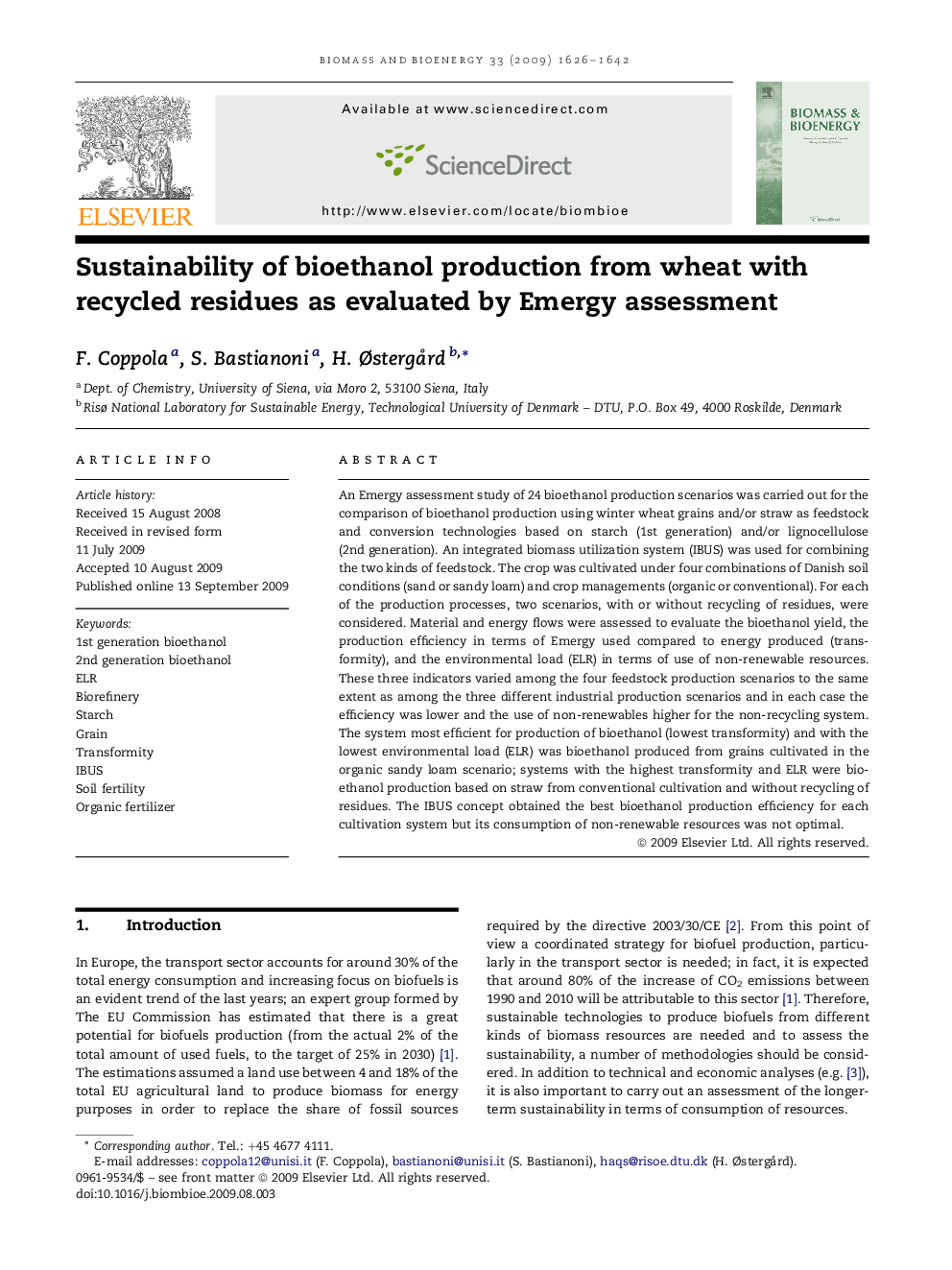| کد مقاله | کد نشریه | سال انتشار | مقاله انگلیسی | نسخه تمام متن |
|---|---|---|---|---|
| 678480 | 888649 | 2009 | 17 صفحه PDF | دانلود رایگان |
عنوان انگلیسی مقاله ISI
Sustainability of bioethanol production from wheat with recycled residues as evaluated by Emergy assessment
دانلود مقاله + سفارش ترجمه
دانلود مقاله ISI انگلیسی
رایگان برای ایرانیان
کلمات کلیدی
موضوعات مرتبط
مهندسی و علوم پایه
مهندسی شیمی
تکنولوژی و شیمی فرآیندی
پیش نمایش صفحه اول مقاله

چکیده انگلیسی
An Emergy assessment study of 24 bioethanol production scenarios was carried out for the comparison of bioethanol production using winter wheat grains and/or straw as feedstock and conversion technologies based on starch (1st generation) and/or lignocellulose (2nd generation). An integrated biomass utilization system (IBUS) was used for combining the two kinds of feedstock. The crop was cultivated under four combinations of Danish soil conditions (sand or sandy loam) and crop managements (organic or conventional). For each of the production processes, two scenarios, with or without recycling of residues, were considered. Material and energy flows were assessed to evaluate the bioethanol yield, the production efficiency in terms of Emergy used compared to energy produced (transformity), and the environmental load (ELR) in terms of use of non-renewable resources. These three indicators varied among the four feedstock production scenarios to the same extent as among the three different industrial production scenarios and in each case the efficiency was lower and the use of non-renewables higher for the non-recycling system. The system most efficient for production of bioethanol (lowest transformity) and with the lowest environmental load (ELR) was bioethanol produced from grains cultivated in the organic sandy loam scenario; systems with the highest transformity and ELR were bioethanol production based on straw from conventional cultivation and without recycling of residues. The IBUS concept obtained the best bioethanol production efficiency for each cultivation system but its consumption of non-renewable resources was not optimal.
ناشر
Database: Elsevier - ScienceDirect (ساینس دایرکت)
Journal: Biomass and Bioenergy - Volume 33, Issue 11, November 2009, Pages 1626-1642
Journal: Biomass and Bioenergy - Volume 33, Issue 11, November 2009, Pages 1626-1642
نویسندگان
F. Coppola, S. Bastianoni, H. ÃstergÃ¥rd,